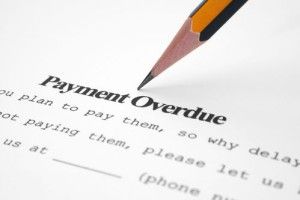Top Class Actions’s website and social media posts use affiliate links. If you make a purchase using such links, we may receive a commission, but it will not result in any additional charges to you. Please review our Affiliate Link Disclosure for more information.

Plaintiff Donna S. filed the TCPA lawsuit against Allied for allegedly violating federal law by calling repeatedly even after she asked the debt collection company to stop.
The TCPA lawsuit claims that Allied called Donna’s cell phone using a automatic telephone dialing system, for non-emergency purposes, to collect a debt that was not hers. Donna alleges that she has no account with Allied nor did she give prior consent for the agency to call her cell phone.
The plaintiff is seeking $500 per call for each negligent federal violation and $1,500 for each willful federal violation.
The act of collecting debt is legal, however federal laws were enacted by Congress as a way to keep creditors from pursuing debtors in a harassing manner. Despite the numerous debt collection laws, there are bill collectors who still engage in illegal practices.
Illegal debt collection violations include:
- Collection of debts not owed. Agencies cannot pursue collecting debts that are not owed by the debtor either because the debt was previously settled or due to identity theft, the debt may not even be owned by the debtor to begin with.
- Third party contact. Debt collectors cannot call a debtor’s family, friends or employers in an effort to collect on a debt.
- Telephone harassment. Bill collectors are not allowed to let the phone ring continuously with the intent of annoying a debtor. They are also only allowed to make phone calls between the local hours of 8 a.m. and 9 p.m.
- Debt collection harassment. Agencies are prohibited from repeatedly contacting debtors especially when they request the calls to stop. Debt collectors are also not allowed to use threats or abusive language when speaking with a debtor.
- Deceptive practices. Debt collectors cannot misrepresent who they are by sending out letters that appear “legal” even though they are not.
- Expired debt collection. Collectors may not try to collect debts that are more than four years old.
- Failure to stop communication. When a debtor makes a written request to end communication with a creditor, the creditor must respect the rights of the debtor.
If you believe your legal rights have been violated, contact an attorney to find our if you have legal claim.
The TCPA Class Action Lawsuit is Case No. 0:15-cv-01886-RHK-TNL in the U.S. District Court for the District of Minnesota.
Join a Free TCPA Class Action Lawsuit Investigation
If you were contacted on your cell phone by a company via an unsolicited text message (text spam) or prerecorded voice message (robocall), you may be eligible for compensation under the Telephone Consumer Protection Act.
ATTORNEY ADVERTISING
Top Class Actions is a Proud Member of the American Bar Association
LEGAL INFORMATION IS NOT LEGAL ADVICE
Top Class Actions Legal Statement
©2008 – 2024 Top Class Actions® LLC
Various Trademarks held by their respective owners
This website is not intended for viewing or usage by European Union citizens.














